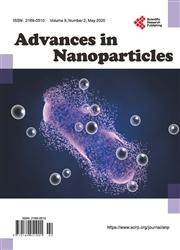Cytotoxic Effect of Propolis Nanoparticles on Ehrlich Ascites Carcinoma Bearing Mice
引用次数: 5
Abstract
Background and objective Previous studies have demonstrated the anti-cancer effects of propolis. However, its use is limited because of its poor bioavailability. In the present study, the major objective was to improve propolis bioavailability using a nanosuspension formulation. The cytotoxic effect of propolis nanosuspension (PRO-NS) on the Ehrlich ascites carcinoma (EAC) in female Swiss albino mice was investigated in comparison to the free propolis. Materials and methods A propolis-loaded nanosuspension was formulated by applying solvent-antisolvent nano-precipitation technique. The prepared PRO-NS was characterized for average particle size, polydispersity index (PDI) and zeta potential. Also, the morphology of the nanosuspension particles was investigated using scanning electron microscopy (SEM). Moreover, PRO-NS cytotoxicity was tested using EAC bearing mice. The anticancer activity of Pro-NS was assessed by studying tumor volume, life span, viable and non-viable cell count, antioxidant, biochemical estimations and proliferation of EAC cells. Results The results revealed that propolis nanoparticles were relatively spherical in shape with rough surface. The tumor bearing mice treated with PRO-NS showed increased life span and inhibited tumor growth and the proliferation of EAC cells in comparison to the free propolis (p < 0.01). Moreover, Pro-NS ameliorated the increase in serum aspartate transaminase (AST) and alanine transaminase (ALT) activities, IgM and the level of creatinine and urea after implantation of EAC cells. In addition, PRO-NS improved the SOD activity and glutathione content of liver and EAC cells. Furthermore, PRO-NS inhibited the formation of lipid peroxidation products (MDA) and total IgG in EAC tumor bearing mice. Conclusions Our results indicate that PRO-NS has a strong inhibitory activity against growth of tumors in comparison to free propolis. The anti-tumor mechanism may be mediated by preventing oxidative damage, immune-stimulation and induction of apoptosis.蜂胶纳米颗粒对埃利希腹水癌小鼠的细胞毒性作用
背景与目的已有研究证实了蜂胶的抗癌作用。然而,由于其生物利用度低,其使用受到限制。在本研究中,主要目的是使用纳米混悬剂制剂提高蜂胶的生物利用度。研究了蜂胶纳米混悬液(PRO-NS)与游离蜂胶对瑞士白化病雌性小鼠艾氏腹水癌(EAC)的细胞毒性作用。材料与方法采用溶剂-反溶剂-纳米沉淀技术制备蜂胶纳米混悬剂。对制备的PRO-NS的平均粒径、多分散指数(PDI)和ζ电位进行了表征。此外,使用扫描电子显微镜(SEM)研究了纳米悬浮颗粒的形态。此外,使用携带EAC的小鼠测试了PRO-NS的细胞毒性。通过研究肿瘤体积、寿命、活细胞和不活细胞计数、抗氧化剂、生化评估和EAC细胞增殖来评估Pro-NS的抗癌活性。结果蜂胶纳米粒子呈球形,表面粗糙。与游离蜂胶相比,PRO-NS处理的荷瘤小鼠寿命延长,并抑制肿瘤生长和EAC细胞增殖(p<0.01)。此外,PRO-NS改善了EAC细胞植入后血清天冬氨酸转氨酶(AST)和丙氨酸转氨酶(ALT)活性、IgM以及肌酸酐和尿素水平的增加。此外,PRO-NS还能提高肝脏和EAC细胞的SOD活性和谷胱甘肽含量。此外,PRO-NS抑制EAC荷瘤小鼠脂质过氧化产物(MDA)和总IgG的形成。结论与游离蜂胶相比,PRO-NS对肿瘤生长具有较强的抑制作用。抗肿瘤机制可能通过防止氧化损伤、免疫刺激和诱导细胞凋亡来介导。
本文章由计算机程序翻译,如有差异,请以英文原文为准。
求助全文
约1分钟内获得全文
求助全文

 求助内容:
求助内容: 应助结果提醒方式:
应助结果提醒方式:


